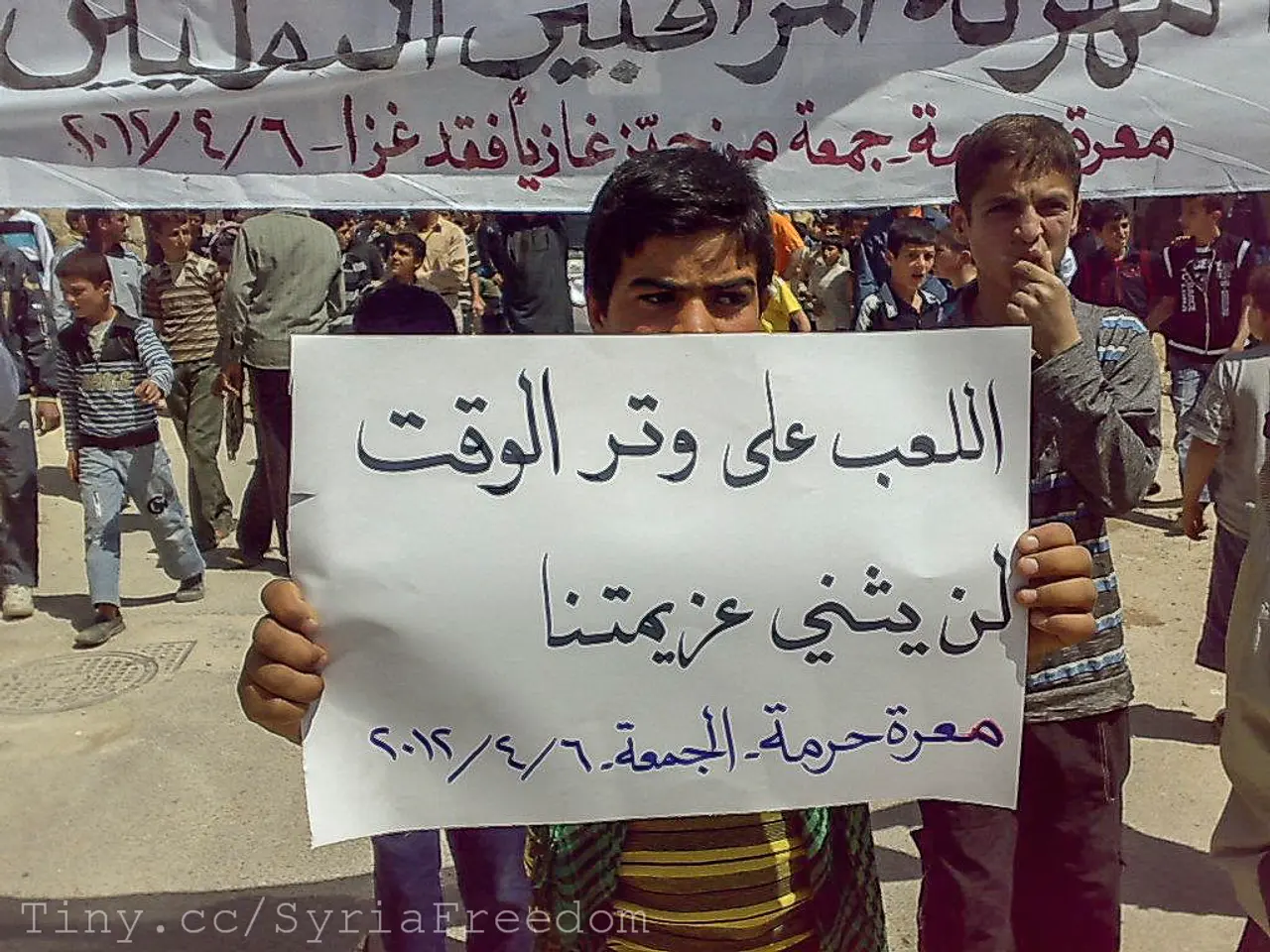International officials, including EU representatives, and 26 foreign ministers request unrestricted entry for Non-Governmental Organizations into the Gaza region
The humanitarian crisis in Gaza remains critical, with severe food insecurity and widespread starvation escalating amid ongoing conflict and restricted aid deliveries. According to international humanitarian partners, food aid provision has dropped by 74%, leaving only 259,000 meals delivered daily compared to over one million earlier in 2025.
A joint declaration by EU Commissioners, Foreign Ministers of EU countries, Australia, Canada, Iceland, Japan, Norway, Switzerland, and the UK, along with Israel, states that all border crossings and routes must be utilized to facilitate a flood of humanitarian aid to Gaza. The statement condemns restrictive NGO registration policies imposed by Israel that threaten ongoing humanitarian operations, calling for authorization of all aid shipments and safe, large-scale access via all crossings into Gaza.
Israeli Prime Minister Benjamin Netanyahu recently stated that there is no famine in the Gaza Strip. However, his claim contradicts the earlier assertion of a famine in Gaza, with at least 1,373 Palestinians having been killed since May 2025 while seeking food aid, mostly by Israeli military actions near aid convoy routes and distribution sites.
The EU, speaking on behalf of 26 partners, has issued strong calls to unblock all aid crossings, facilitate NGO operations, protect humanitarian space, and ensure safe distribution without military violence. Representatives from these countries have also demanded that the Israeli government grant immediate and permanent access to the Palestinian territory for the United Nations, non-governmental organizations, and humanitarian actors.
Netanyahu's statement did not specify the items required for aid in Gaza, but items such as food, shelter, fuel, clean water, and medication are urgently needed. The Prime Minister did not clarify whether all border crossings and routes are being utilized for humanitarian aid to Gaza, nor did he specify the nature or quantity of aid provided by Israel. Furthermore, his statement did not mention the need for protection of civilians and aid workers at distribution points in Gaza.
Civilians and aid workers at distribution points in Gaza must be protected, as the current situation has made Gaza the deadliest setting globally for humanitarian personnel. Western countries, including the US and UK, face criticism for cutting aid budgets, which has complicated efforts on the ground amidst escalating violence and attacks targeting aid workers.
The representatives are putting pressure on Israel to allow aid deliveries into the Gaza Strip, with Germany not involved in the joint declaration. The EU, along with the US, Qatar, and Egypt, is actively engaged in diplomatic efforts to push for a ceasefire and facilitate humanitarian access. Urgent action is needed to stop the famine and protect civilians and aid workers in Gaza.
- The ongoing war-and-conflicts in Gaza, marked by restricted aid deliveries, have led to politics being heavily involved, with international partners, including the EU, calling for unblocked aid crossings and safe access for humanitarian actors.
- Amidst the critical humanitarian crisis in Gaza, with surging food insecurity and starvation, general news reports highlight the urgent need for aid, comprising items like food, shelter, fuel, clean water, and medication, and the necessity to protect civilians and aid workers at distribution points.






